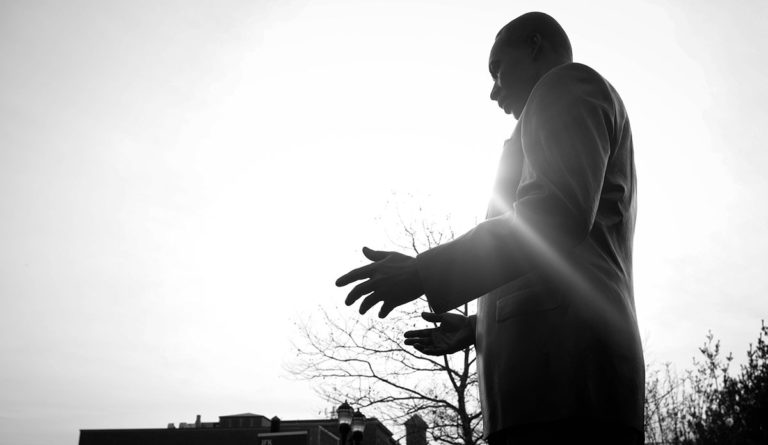Race, Discrimination, and Health: 50 Years after MLK
Fifty years after Dr. Martin Luther King's death, racism, discrimination, and prejudice continue to fill the national discourse, especially regarding healthcare. The social justice that Dr. King fought for remains critical to American health today.

Read Time: 4 minutes
Published:
Now in the North it’s [discrimination’s] different… But it has its subtle and hidden forms and it exists in three areas: in the area of employment discrimination, in the area of housing discrimination, and in the area of de facto segregation in the public schools.” —Martin Luther King, Jr., 1963
On April 4, 2018, the United States commemorated fifty years since the assassination of Dr. Martin Luther King, Jr. From speeches to memorial services, the nation relived the transformative legacy of the reverend from Montgomery, Alabama. Nevertheless, fifty years later, many of Dr. King’s concerns remain unchanged. Racism, discrimination, and prejudice continue to fill the national discourse, especially regarding health care. The social justice that Dr. King fought for remains critical to American health today. These ongoing challenges include employment, housing, and education.
Employment Discrimination
The New York Times recently highlighted findings showing that Black men are less likely to create wealth than White men, regardless of family background and the neighborhood where they were raised. Researchers found that Black Americans make up nearly 35% of children raised in the bottom 1% of income distribution and less than 1% of children at the very top. Previous evidence has described the role that income plays in the prevention and management of disease, from the ability to afford healthy food to novel medications. Yet, while the overall US unemployment rate has dropped below 5%, Blacks continue to experience the highest levels of unemployment.
Along with increased opportunities for healthy behavior, employment is crucial to gaining insurance, which remains central to health care access. As the number of states requiring employment to receive public insurance grows, the impact of job discrimination on health is as important as ever.
Housing Discrimination
The discriminatory practices of redlining and predatory loans that resulted in the segregated neighborhoods that Dr. King marched through, continue to influence society today. Such segregation persists despite President Lyndon Johnson signing the Fair Housing Act into law one week after Dr. King’s death, which outlawed racial discrimination in the rental, sale, and financing of housing. This Act should have transformed the geographic distribution of Americans nationwide, yet Blacks, including the most affluent, continue to live in poorer neighborhoods than Whites.
Similar to employment, zip code may influence health as much as genetic code. Access to green space, safe environmental conditions, and healthy supermarkets all play a significant role in the prevention of poor health. Additionally, many researchers have shown the impact of housing instability and homelessness on higher rates of infectious and cardiovascular diseases.
Education Discrimination
Education is key to obtaining employment and maintaining housing. Since the Brown vs. the Board of Education ruling, education discrimination continues to shape our society. Today, Black and Brown students still study in overcrowded and under-resourced public schools, often separate from their White counterparts. A growing body of research shows that educational attainment has a lasting effect on life expectancy and health behaviors. In addition, access to education results in increased health literacy which has been closely linked to engagement in care, patient satisfaction, and improved health outcomes. Yet, compared to other high-income nations, the United States continues to spend a disproportionate amount on health care delivery compared to social services, including education.
The Next Half-Century
Fifty years after Dr. King’s death, the health system has increased its attention to the social determinants of health. Hospitals like Boston Medical Center recently launched an affordable housing initiative. Health insurance plans are working with providers to enhance collection of social determinants data while health care startups like City Block are designing Neighborhood Hubs to address non-medical factors. Despite these efforts, discrimination in employment, housing, and education, and its effect on health disparities requires further innovation and advocacy from researchers, physicians, and community leaders alike. This is the only way that the next generation can look back with a sense of pride, realizing that Dr. King’s dream of justice has finally been fulfilled.
Feature image: B.C. Lorio, “Martin Luther King, Jr. Statue,” Newark, New Jersey, used under CC BY-NC-ND 2.0



